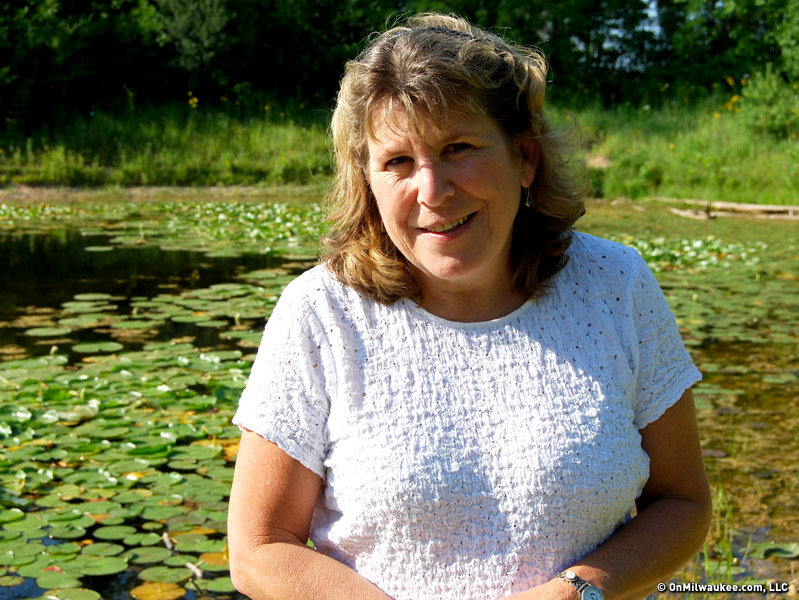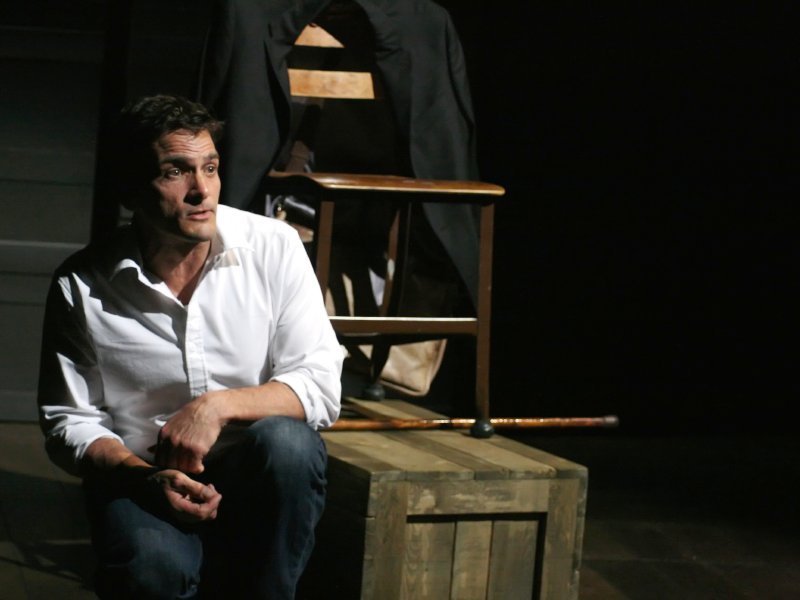In late July, Wisconsin-based author Lesley Kagen released the e-novella "The Undertaking of Tess." The brief story played the role of a charming and intriguing little introduction to the young Finley sisters Tessie and Birdie. That e-novella was merely the appetizer, however; "The Resurrection of Tess Blessing" serves as the full course.
Kagen’s latest novel jumps ahead decades into the future, following a now 49-year-old Tess struggling with a fight against PTSD, a sudden breast cancer diagnosis and the difficult changing relationships with her husband, kids and her own body. To help cope and navigate her constantly shifting world, Tess dreams up an imaginary friend – as well as the book’s narrator – Grace.
The book hits shelves on Tuesday, Dec. 9, and a month later, on Thursday, Jan. 8, Kagen herself will drop by Boswell Books. Before then, however, OnMilwaukee.com talked with the author about "The Resurrection of Tess Blessing," the importance of setting and the future of the Finley sisters.
OnMilwaukee.com: Last time we talked, we focused on your e-novella prequel, "The Undertaking of Tess." How did that e-novella process work for you?
Lesley Kagen: First, I wrote the novel, and as I was writing it, it didn’t feel right to me to give too much backstory for the girls – the Finley sisters. So I thought, because it’s so psychologically based, it would be really interesting to understand how these women ended up the way they did. So I said, "I think I’m going to go back, and I’d like to include more backstory." So that’s when I wrote the novella, so readers could see and feel what the girls’ childhood was like.
OMC: Did Grace’s character start as an imaginary friend, or was she always created to be somewhat ambiguous?
LK: That was right from the beginning. I thought, to be able to tell Tess’s story, I really needed another viewpoint. I wanted to be able to tell all the different parts of the story from a third person. So with Grace, we’re never really clear – is she her imaginary friend? Is she a wiser part of Tess? Is she a guardian angel? – but she is a force that helps Tess get through what she’s going through.
OMC: Both of these books take place in Wisconsin. How much of that setting did you want to bring into the story?
LK: Setting, to me, is extremely important. I have to feel really, really grounded when I write. I’m not the kind of writer who can write science fiction stuff or things that take place in the late 1800s. I need to have experienced a place, because that sense of grounding in a story is really, really important to me. I’m not exactly sure why that is, and I know that’s different for all writers, but a deep sense of where we are – an understanding of the people, the culture, the beauty and the funny intricate things that happen when you know a place well – is something I love to bring into a story.
OMC: Having now worked with both physical copies of books and the online e-novella approach, what do you, as an author, see as the value of a physical copy of a book?
LK: It’s just enormous for me. I’ll read some things on an e-reader, but I am a book person. Somebody once asked me this – because the whole e-thing is taking over so much – and for me, reading a book on an e-reader is like looking at a piece of chocolate cake, versus a book which is like eating a piece of chocolate cake. They’re just two incredibly different experiences.
Part of that has to do with just how we grew up, what we were exposed to and what books mean to us as people – the literally, actual feeling of a book in your hand. To me, that always will be incredibly important.
OMC: We ended our last interview talking about whether you’d revisit these characters for a third time. Is there any thought of doing that now?
LK: I don’t know. I’m at that point right now where I’m so involved in this story still that it’s hard for me to clear my mind out enough to decide that.
I really enjoyed writing the novella, and that short form is really interesting for me. Yet, I also like writing novels. There’s a little part of me that thinks, "Boy, those characters in the novella, the early childhood characters of Tess and Birdie, were really fun to write. So maybe I might like to go and revisit them, and maybe perhaps I’d do some sort of YA novel. I like trying different stuff.
OMC: YA is a super popular genre right now. What new would you hope to bring to it?
LK: I don’t know; I really don’t. I’m kind of just tossing ideas around right now. Sometimes I think that genres don’t even really exist. I think you just write a book, and if you have a narrator of a certain age, it gets classified. Look at my novella: It has an 11-year-old narrator, and it’s classified as a women’s fiction novel. I’m not sure; I kind of just want to leave myself open and not get too stuck on what I might want to write next.
My problem is never, ever writer’s block; my problem – amongst many (laughs) – is that I get too many ideas and directions that I’d like to check out or try or investigate. I usually just have to be quiet and wait. Then something will happen, and that’s the direction I’ll go in.
OMC: What is it about the shorter novella format that intrigues you?
LK: It just seemed so natural to me to write. I love the idea of being able to sit down and read a story in a couple of days. There’s something impactful about that to me. And I like the quicker arc of the story. It makes it a little bit more page-turning for me. The hardest part of that, though, is that you can’t go quite as in depth as you would in a novel because you’re limiting yourself in terms of how much you can get in.
I’ll just know. That’s how I work on this. I’ll just know when the time comes. Maybe next time I’ll write a short story – though I think short stories are really, really hard. I don’t have a lot of confidence in myself that I could write a short story. I think most people think writing a novel is hard, but I really think writing a short story is hard.
OMC: The self-editing involved, picking out what details are important, making sure it still reads nice and that it’s not just incident after incident …
LK: That’s hard! Maybe I’ll challenge myself, or maybe I won’t! (laughs)
As much as it is a gigantic cliché to say that one has always had a passion for film, Matt Mueller has always had a passion for film. Whether it was bringing in the latest movie reviews for his first grade show-and-tell or writing film reviews for the St. Norbert College Times as a high school student, Matt is way too obsessed with movies for his own good.
When he's not writing about the latest blockbuster or talking much too glowingly about "Piranha 3D," Matt can probably be found watching literally any sport (minus cricket) or working at - get this - a local movie theater. Or watching a movie. Yeah, he's probably watching a movie.







